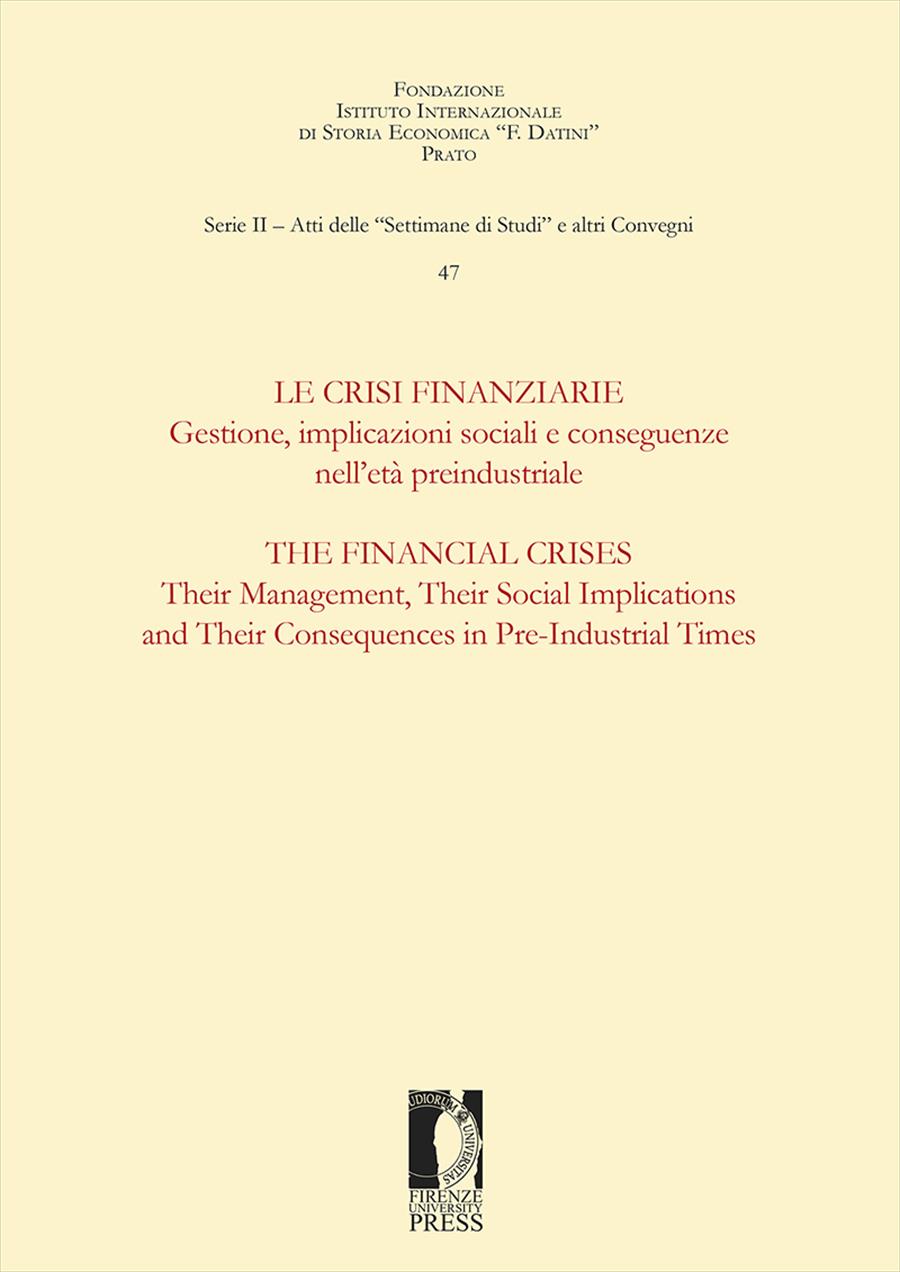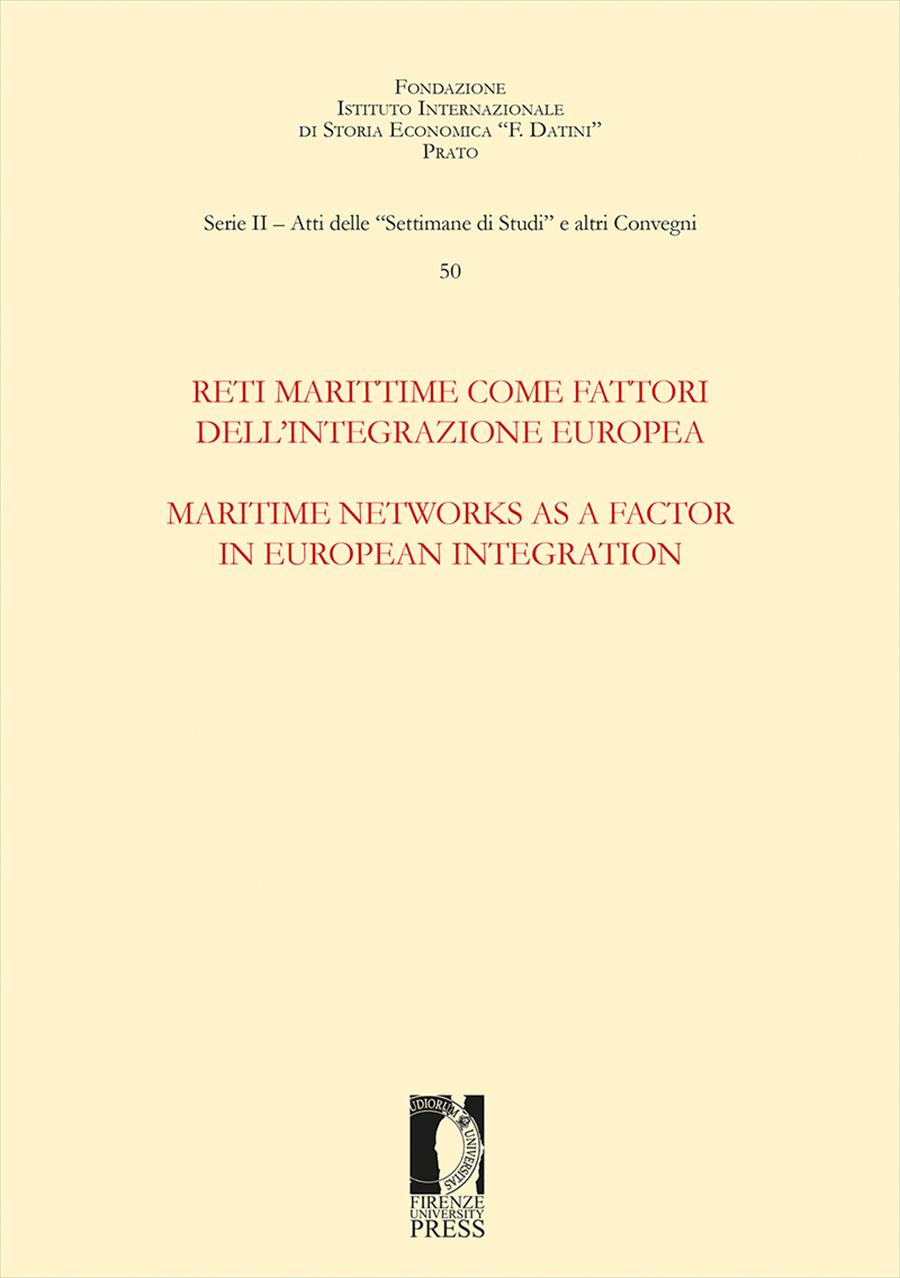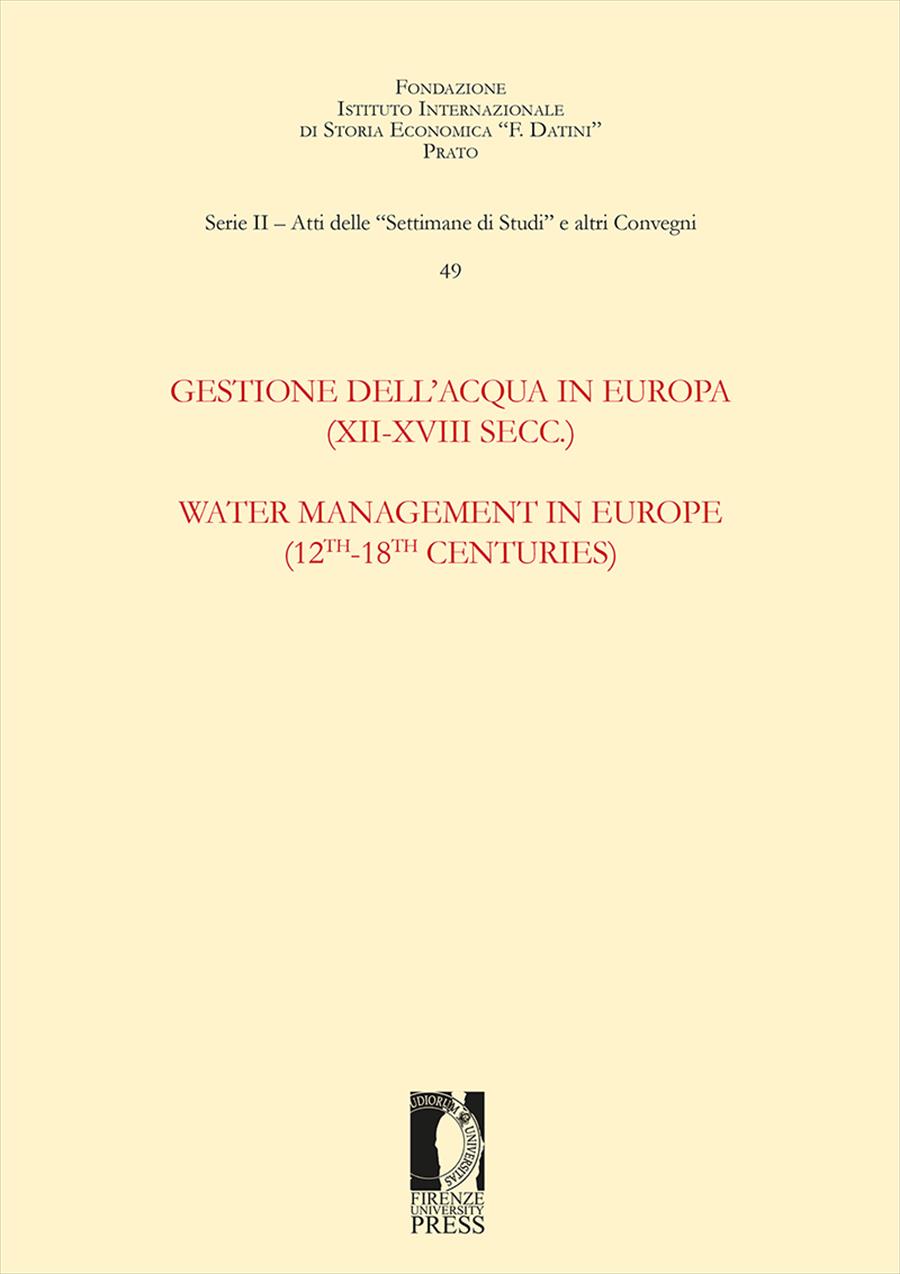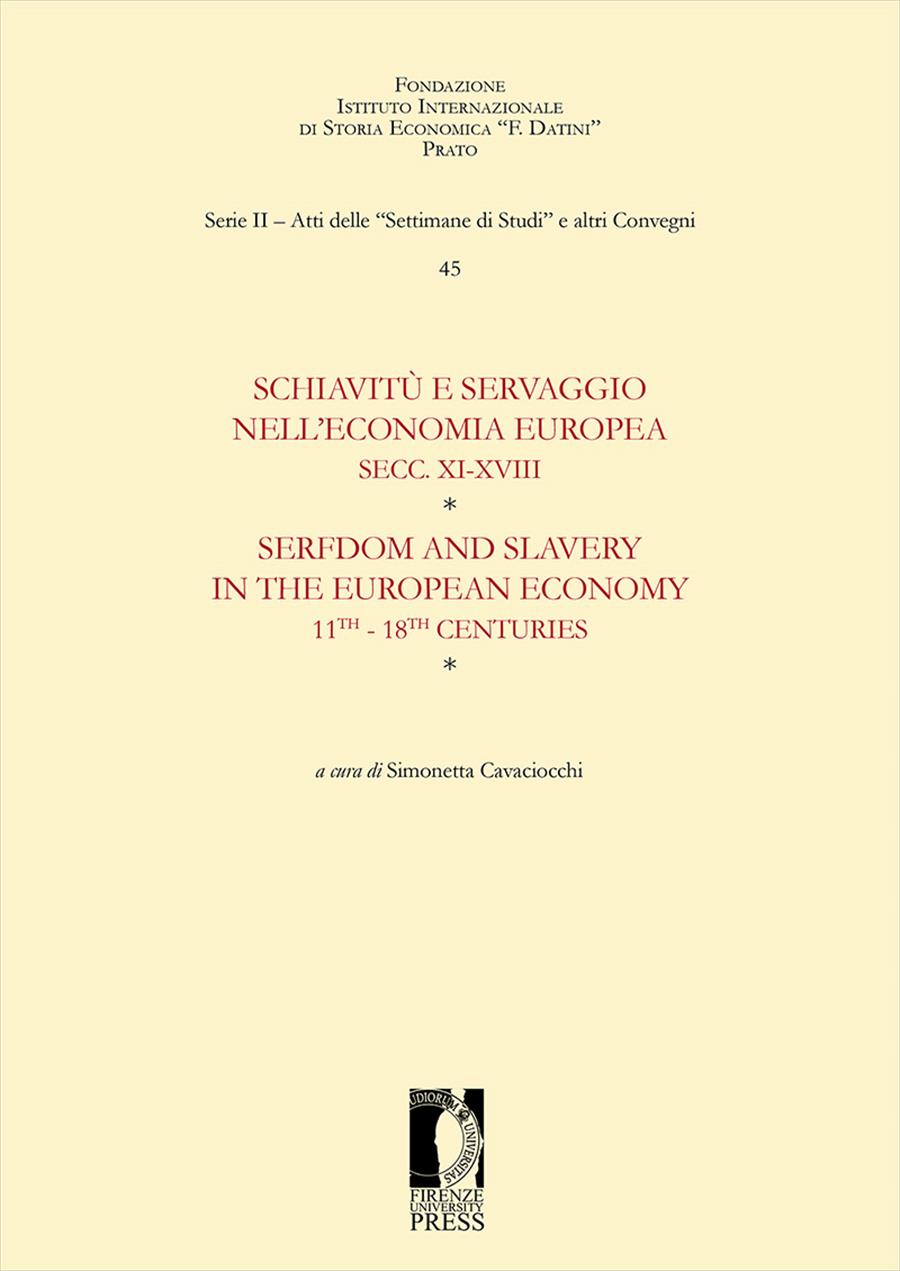Le crisi finanziarie. Gestione, implicazioni sociali e conseguenze nell’età preindustriale / The Financial Crises. Their Management, Their Social Implications and Their Consequences in Pre-Industrial Times
- Edited by:
- Giampiero Nigro,
The current financial and crisis and the recent European Union’s monetary crisis have led to a series of analytical studies and other publications with a historical reference framework which, however, rarely goes beyond the 19th and 20th centuries. Similar studies covering financial crises in pre-modern times are rare, especially when it comes to crisis management strategies, social consequences and to the backgrounds of the said crises. This volume is therefore structured around the following main themes: analysis of financial crises, role of (re)actors, crisis management and role of institutions. This work presents the research results of the project launched by the “F. Datini” International Institute of Economic History in 2013. Starting from a theoretical approach to the causes and evolutions of financial crises and to their economic and social consequences in the context of economic development, the project aimed at demonstrating or denying the significance of the "crisis theories” from the pre-industrial period. If the economic consequences of the financial crises are well known (business bankrupts, commercial crises and depression, failures and collapses in the networks of cashless payments, and their influence on the entire economic cycle of the analysed economies), the vision of the individual’s behaviour, or the society’s behaviour, due to its economic actions in times of financial crisis, results more nuanced. In recent years, the scientific debate has focused on the matter of how economic homines act or react during financial crises. Using the perspective of case studies from the pre-industrial period, it becomes clear that the role of the individual is substantially more important and serious than it appears in previous research (if it does appear at all), both for the occurrence of the crisis and for the attempts to overcome it. Finally, contributions have investigated crisis management in times of financial turmoil. Analysis of crisis management in the pre-industrial era can indeed be an essential step forward in the understanding of current crisis management.
- DOI: 10.36253/978-88-6655-949-8
- Series: Atti delle «Settimane di Studi» e altri Convegni
- Scientific Board: Fondazione Istituto Internazionale di Storia Economica «F. Datini»
- Language: Italian, English
- Subjects: Economic History
Purchase
University of Florence, Italy - ORCID: 0000-0002-1008-1153
- Publication Year: 2016
- Pages: 564
- eISBN: 978-88-6655-949-8
- Content License: CC BY-NC-ND 4.0
- © 2016 Author(s)
- Publication Year: 2016
- Pages: 564
- ISBN: 978-88-6655-948-1
- Content License: CC BY-NC-ND 4.0
- © 2016 Author(s)
- Publication Year: 2016
- eISBN: 978-88-9273-279-7
- Content License: CC BY-NC-ND 4.0
- © 2016 Author(s)
Bibliographic Information
Book Title
Le crisi finanziarie. Gestione, implicazioni sociali e conseguenze nell’età preindustriale / The Financial Crises. Their Management, Their Social Implications and Their Consequences in Pre-Industrial Times
Editors
Giampiero Nigro
Peer Reviewed
Number of Pages
564
Publication Year
2016
Copyright Information
© 2016 Author(s)
Content License
Metadata License
Publisher Name
Firenze University Press
DOI
10.36253/978-88-6655-949-8
ISBN Print
978-88-6655-948-1
eISBN (pdf)
978-88-6655-949-8
eISBN (xml)
978-88-9273-279-7
Series Title
Atti delle «Settimane di Studi» e altri Convegni
Series ISSN
2704-6354
Series E-ISSN
2704-5668





